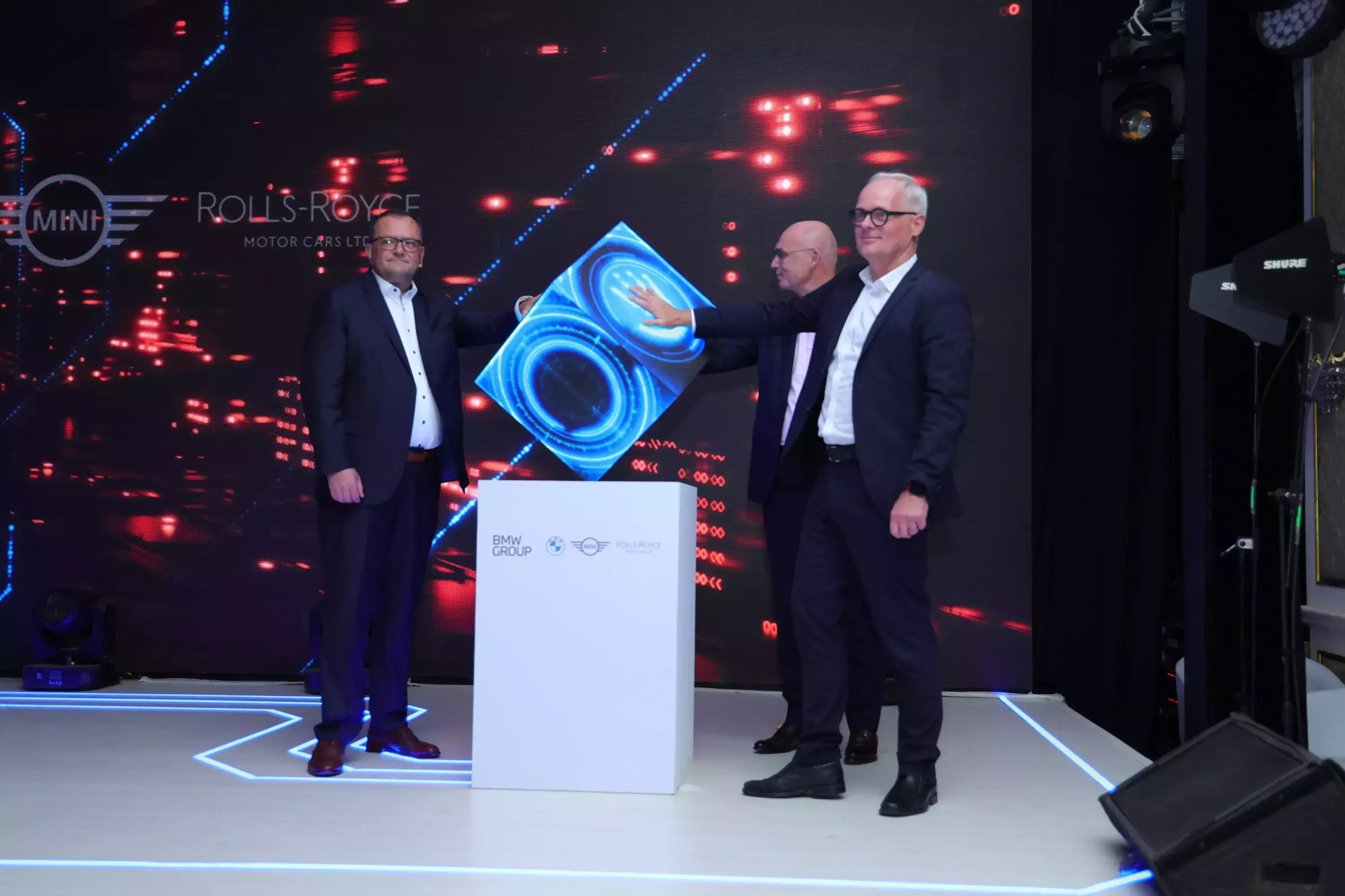‘The Indian tech hub will have global products and deliver global services’

German luxury car major BMW is the latest global player to set up a technology development centre in India, its fifth globally, through a 50:50 joint venture with Tata Technologies. In the following interview, BMW Group’s CIO and Sr. VP Alexander Buresch, and Christoph Grote, Sr. VP – Software and E/E architecture, talk to ETAuto’s Editor - Technology Sumantra Bibhuti Barooah about how BMW plans to tap India for technology leadership, the trends of automobile softwarisation, Autonomous Driving,and whether BMW could see its future SDV programmes being developed in India.
Q: Lots of hope and expectations from this new JV. Given the scope it has, could it be your largest technology development base outside of Germany, especially on the software side?
Christoph Grote: You know, we never put a cap to anything that we build. We've got a different setup. For example, in Portugal, it's grown more than we planned. My expectation is that in India we will see a similar phenomenon. Everything that we build together in this joint venture, we take great care not to overstretch it, but to make sure that people, processes, and competencies are really top.
Once this machine is running, we've experienced elsewhere that it usually does scale well. Particularly with Indian talent, the hunger, the ambition, the thirst to shape things, to learn things, I don't want to bet now, but I could very well imagine that this will grow for quite a while.
Q: In Portugal, you didn't expect it to grow the way it has. Could you just share some more information? How fast it has grown, how big it is?
Christoph Grote: The critical tech works team has 3000 employees and it's six years old. That's not an explicit reference to India. For India, it depends on how things go. I'm positive.
Q: Would these centres be catering to any particular geographies?
Alexander Buresch: In general, it's a way that in the first place, like for example, in India, the hub is serving in the first place for the APAC region. Likewise, for example, the plant in Chennai, and then from there they usually grow. And what I think about the Indian hub is that it's not a regional hub because we have regional hubs, it will have global products and they deliver global services.
Q: Will it work or collaborate with the other centres also?
Alexander Buresch: Yes, absolutely. We have to, because, if you think about the end to end processes within the company, it's covered by many products and these products are not at one place, so they are probably distributed over one or two or three hubs. And, so we are very much harmonising all of this in a common working model where these hubs go together.
India has a very good chance to take over responsibility over some key areas.Christoph Grote, Sr. VP – Software and E/E architecture, BMW Group
Q: Could it be that BMW tech works India could get the major responsibility of developing the next SDV programme?
Christoph Grote: I think other experiences have shown that we are keen to hand over responsibility for individual areas. And realistically I think India has a very good chance to take over responsibility over some key areas. We've done that before. The whole, I think, is less likely, and also it's not helpful.
Q: How big do you think the SDV market is going to be as right now it is at an experimental stage?
Christoph Grote: I find that hard to answer, because it very much depends on where you define the boundary of that market. I've seen statistics that were differing by a factor of ten. I think it will be a strongly growing market. And there's one particular reason for it that everybody knows.
In the past, hardware would iron out a lot of things that software didn't do properly. In the future, I believe maintaining your software assets will become more and more important.Christoph Grote, Sr. VP – Software and E/E architecture, BMW Group
I think the one factor that's less well known is that the cost of semiconductors is picking up. It's not getting cheaper as it did in the past and therefore investment into efficient code is becoming more profitable than in the past. In the past, hardware would iron out a lot of things that software didn't do properly. In the future, I believe maintaining your software assets will become more and more important.
That is true for embedded software, for data centre software, for AI.
Q: What is BMW's take on the autonomous driving megatrend timeline? Because that goal post seems to be shifting and as a megatrend, it has also gone into what is termed as technology winter. Many people are relooking at it, while some are cutting back investments on autonomous driving, though ADAS is on the rise.
Christoph Grote: I think as with a lot of things, sometimes we refrain from overhyping things and at the other time then we have the stamina to carry on with things. If you look at, for example, connected vehicles, there was a big hype in 2000 and then suddenly everybody stopped. We carried on for the past 25 years.
With autonomous driving, or ADAS in general, I think it's a marathon, it's a long term thing.Christoph Grote, Sr. VP – Software and E/E architecture, BMW Group
With autonomous driving, or ADAS in general, I think it's a marathon, it's a long term thing. Expanding the operational envelope of autonomous driving into urban scenarios, into adverse conditions is a long term goal. If you look at what we put on the roads today, I think we're well placed. So, as I said before, ADAS Level 3 in Germany is a reality. You can buy a 7 series that has Level 3. So you can watch movies while you're driving today.
Also, a lot of things are happening in the level two space. There was a time when everybody said, when will you do Level 6? You know, there's no Level 6. It was just counting numbers. But if you look at craftsmanship, how well integrated the product is with a human, then I think in the level two space, there's still a lot of room.
Q: Lastly, the BMW Neue Klasse, how much can it redefine the automobile that we know it as today?
Christoph Grotre: As I said, stay tuned. It's not going to take that long.
There's quite a few components that make up a car that will be very natural, very elegant, very modern, and it will be another level of autonomous driving. We won't be talking about this today, but what is sure, it's digital, electric and circular.

